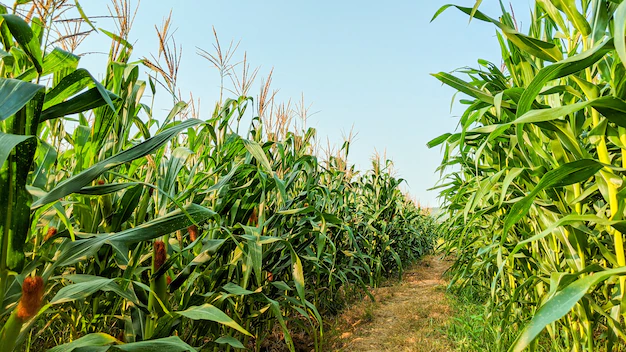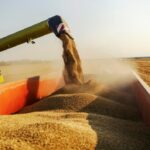Maize is a staple crop in South Africa, vital for food security and as a source of income for many farmers. Despite its importance, maize farming can be challenging, with common mistakes often leading to reduced yields and financial losses. Understanding and addressing these errors can significantly improve productivity and profitability. Here are ten common mistakes in maize farming and how to avoid them.
1. Planting at the Wrong Time
Timing is critical in maize farming. Planting too early or late in the season can expose crops to adverse weather conditions, such as frost or drought.
Solution: Follow regional planting calendars and consult local agricultural extension services. Ideally, plant when soil temperatures are consistently above 10°C, and there’s sufficient rainfall.
2. Using Low-Quality Seeds
Using substandard or untreated seeds can lead to poor germination rates and increased vulnerability to pests and diseases.
Solution: Invest in certified seeds from reputable suppliers. Choose seed varieties suited to your region’s climate and soil conditions.
3. Neglecting Soil Testing
Many farmers plant maize without assessing soil fertility, leading to nutrient imbalances and poor crop performance.
Solution: Conduct soil tests to determine nutrient levels and pH. Apply fertilizers and lime based on test results to optimize soil health.
4. Incorrect Fertilizer Application
Overusing or underusing fertilizers can harm maize plants and waste resources. Applying fertilizers unevenly also reduces efficiency.
Solution: Follow recommended rates and methods of application. Use tools like split application and band placement to maximize nutrient uptake.
5. Poor Weed Management
Weeds compete with maize for nutrients, water, and sunlight, leading to stunted growth and lower yields.
Solution: Implement an integrated weed management plan. Use pre-emergent herbicides, mechanical weeding, and crop rotation to control weed populations.
6. Ignoring Pest and Disease Control
Pests like the fall armyworm and diseases such as grey leaf spot can devastate maize crops if left unchecked.
Solution: Regularly scout your fields for signs of pests and diseases. Use resistant varieties, biological controls, and approved pesticides when necessary.
7. Overcrowding Plants
Planting maize too closely can lead to competition for resources, increasing the risk of lodging (falling plants) and disease spread.
Solution: Maintain optimal spacing between plants based on the variety and intended use. For most maize varieties, spacing of 25-30 cm between plants and 75 cm between rows is recommended.
8. Inadequate Irrigation
Overwatering or underwatering maize can lead to root damage and reduced yields.
Solution: Monitor soil moisture levels and adopt efficient irrigation methods, such as drip or sprinkler systems. Water consistently during critical growth stages like silking and grain filling.
9. Harvesting Too Early or Late
Premature harvesting results in low yields and immature grains, while late harvesting increases the risk of pest damage and grain losses.
Solution: Harvest maize when kernels are hard and the moisture content is between 20-25%. Use a moisture meter to determine the optimal harvesting time.
10. Failure to Rotate Crops
Continuous maize planting depletes soil nutrients and encourages pest and disease buildup.
Solution: Practice crop rotation by alternating maize with legumes, such as beans or soybeans, to restore soil fertility and break pest and disease cycles.
Tips for Success
- Keep Records: Track farming activities, costs, and yields to identify areas for improvement.
- Stay Informed: Attend workshops, join farming cooperatives, and follow local agricultural updates to stay ahead of challenges.
- Adopt Technology: Use tools like drones, soil sensors, and mobile apps for precision farming and real-time data analysis.
Avoiding these common mistakes in maize farming can significantly enhance productivity and profitability for South African farmers. By focusing on good agricultural practices, farmers can ensure sustainable and resilient maize production. For further guidance, consult local agricultural experts or join a maize growers’ association for support and resources.
Join 'Farmers Mag' WhatsApp Channel
Get the latest Farming news and tips delivered straight to your WhatsApp
CLICK HERE TO JOIN






